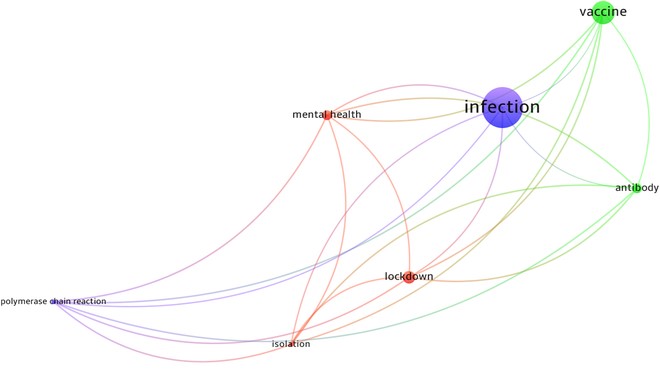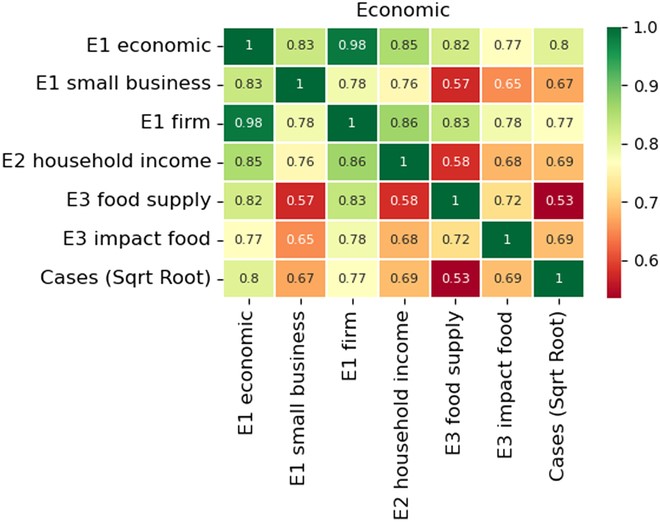Summary of Impact
The COVID-19 pandemic has posed major challenges for decision-makers, requiring them to effectively address health concerns, create regulations, and maintain economic stability. This research emphasizes the need for decisions based on solid evidence and data. By using the Oxford COVID-19 Government Response Tracker and analyzing over 400,000 research summaries, the study shows that researchers react to COVID-19 issues more quickly and thoroughly than what people are searching for online through Google Trends. The results suggest that policymakers can use academic research to spot key issues sooner, allowing them to take action in a timely manner. Additionally, the new method for organizing topics introduced in this study offers a clearer understanding of the main ideas in the research summaries, outperforming current advanced technology tools. This research not only adds to our understanding of how to respond to pandemics but also provides policymakers with useful insights for making better decisions.
Underpinning Research
COVID-19 research work is widely acknowledged by experts from various domains as a valuable source of information for combatting the pandemic. However, the huge volume of research papers poses a challenge, as there are limited tools available for analysis. Timothy Sheahan, a virologist specializing in COVID-19, acknowledges the difficulty of keeping up with the ever-increasing number of scientific papers related to the disease and the novel coronavirus. It is simply impossible for him to read through the extensive collection of available papers.
Current research has predominantly used Google Trends (GT) indices to find out the relationships between different issues (e.g., oil market, elderly death rates, vaccine and lockdown) and COVID infection/death rates, because GT could find out the most frequently searched words for the time and location selected and show what topics the public may be most interested in or responsive to during the selected period. Based on such search interest result, policymakers can design new policies to curb the pandemic. Despite the advantages, GT is not able to reflect factors that are important but have not been frequently searched, which may be covered and studied in academic research works. Therefore, a comparison between GT and such academic works may help present a more comprehensive picture of the pandemic and enable policymakers to identify key factors affecting the same and make appropriate policies accordingly.
To resolve the above research gaps, we have proposed a new research framework to analyze the huge volume of textual data. In this work, we have applied the proposed framework to two worldwide bodies of information about COVID-19, using the keywords obtained from Google Trends (GT) and over 400,000 research abstracts (RAs) available in the WHO COVID-19 research database. Second, we have discussed the response times of the two worldwide information databases to major COVID-19 issues and explored the relationships between these two sets of textual information. The results provide a signal whether GT provides a faster or earlier warning in COVID-19-related issues than RAs do. The early signals and trends of the challenging factors can provide important information to institutions and governments to make decisions, understand the complexity of problems and monitor citizens' preferences. Third, using the obtained key phrases and clusters, we can find the trends of different COVID-19 issues raised by researchers. Our results show that the research abstracts not only discussed almost all of the COVID-19 issues earlier than Google Trends did, but they also provided more in-depth coverage. This should help identify core COVID-19 issues and act earlier. Besides, our clustering method can better reflect the main messages of the abstracts than a recent advanced deep learning-based topic modeling tool.
Publications
- Benson S. Y. Lam, Amanda M. Y. Chu, Jacky N. L. Chan, Mike K. P. So (2024). Do Scholars Respond Faster Than Google Trends in Discussing COVID-19 Issues? An Approach to Textual Big Data, Science Partner Journals – Health Data Science, Vol. 4, DOI: 10.34133/hds.0116.
- This work was also mentioned in Medical Press.
Date: 29th, March, 2024
Do scientists respond faster than Google trends in discussing COVID-19 issues? A new approach to textual big data (medicalxpress.com)




